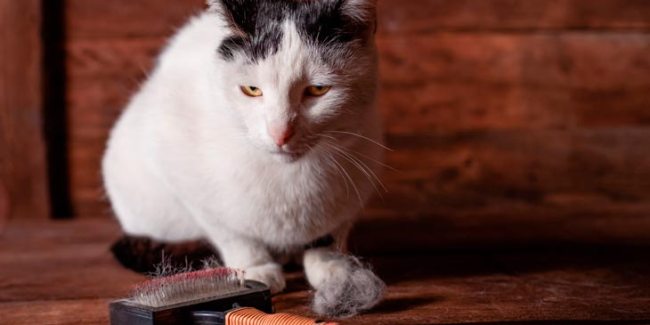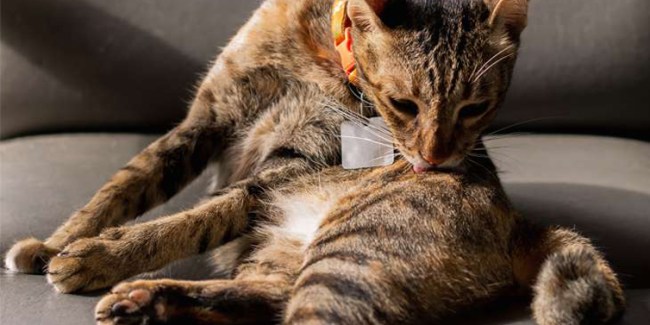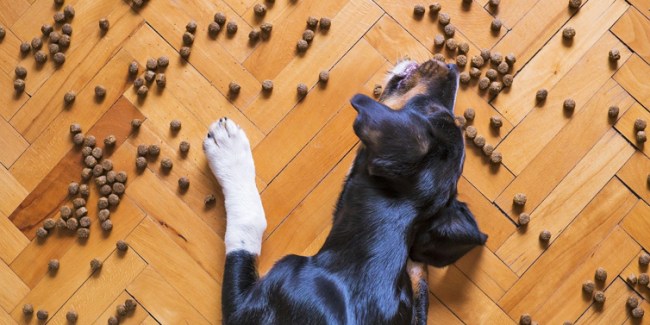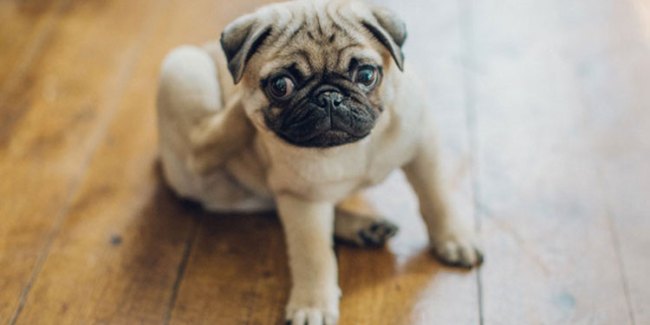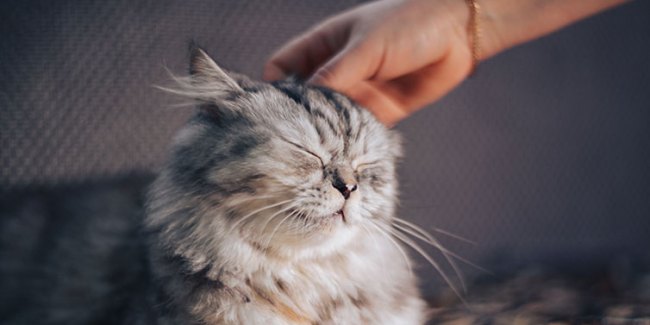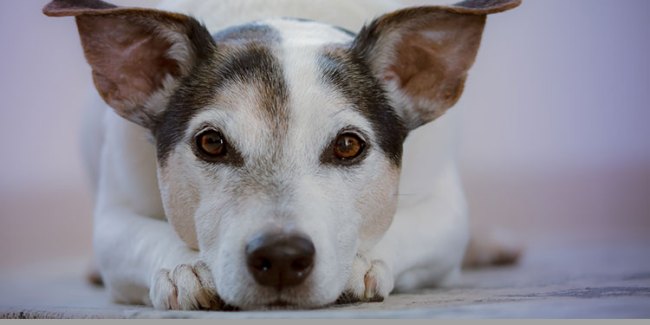Treats for Furry Friends
“I am the lucky mom of two doggies and a kitty. They are all healthy and I make sure that I give them the best food I can to keep them that way. I’d like to be able to give them the odd treat every now and again – let’s face it, we all enjoy something tasty and different occasionally! I often feel sorry for them, eating the same food every day. I’d also like to be able to reward them sometimes for ‘being good”, which doesn’t happen very often! But I don’t want them to put on weight either or eat anything that might be bad for them. I’d be grateful for your advice on this.”
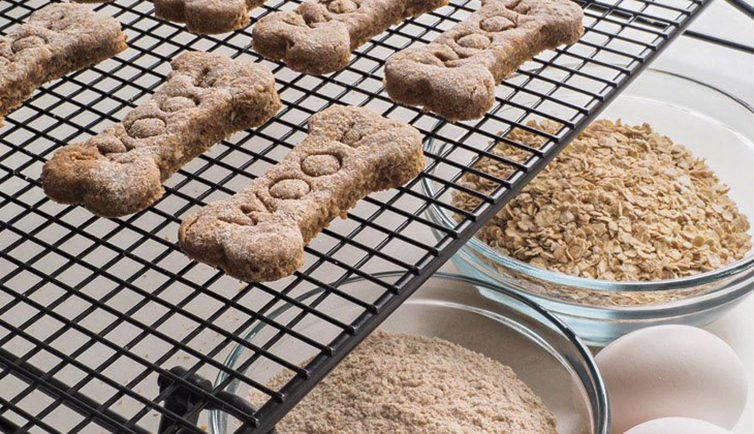
We understand this pet parent’s problem. We all know that a nutritious diet is key to happy and healthy furry friends and that we should resist the temptation to give them treats which may just add to their calorie intake with little nutritional value. We have all been tempted too, to give them the odd taste of human food in the belief that it ‘won’t do them any harm’ because, like the correspondent above, we feel sorry for them having to eat dry kibble with the odd tablespoonful of wet food, every day. Those sad eyes, staring at us as we eat our delicious lasagna are very hard to resist, aren’t they?
We’re going to address these concerns and provide some suggestions of treats which will add to their nutritional intake and which won’t turn your healthy furry friends into chunky couch potatoes. We’re also going to look at whether or not you should give in to the pleading eyes, and give your furries some of your left-over lasagna or indeed any human food.
Firstly and most importantly, always consult your vet before embarking on giving your pet any new type of food. He/she can make suggestions regaring which treats are best for your particular pooch or kitty, taking their medical history into account.
Human Food?
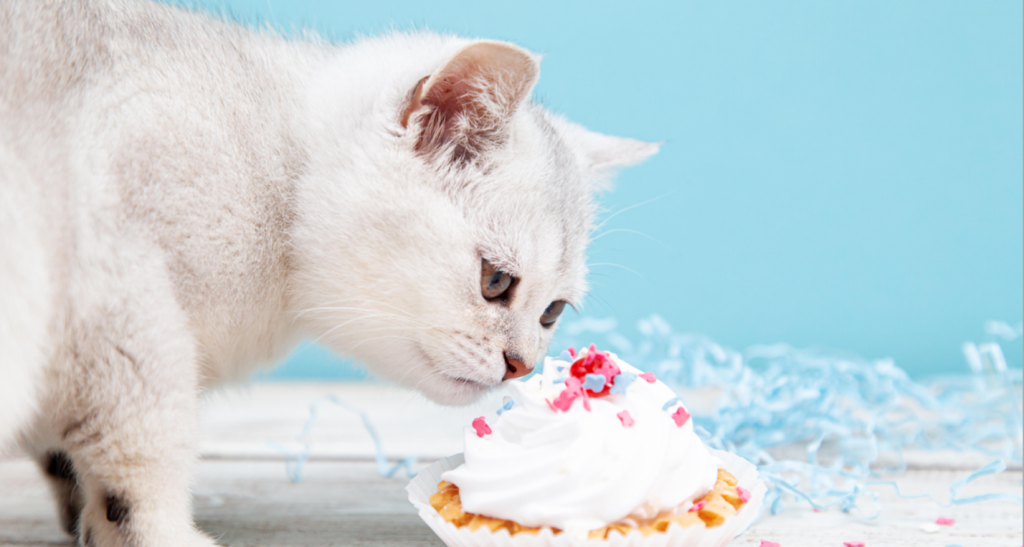
You know what we’re about to say, right? Yes, human food is just that: it’s for humans, whose nutritional needs and digestive systems are very different to those of our pets. It usually contains far more calories than your pets need and can in fact be unhealthy and even toxic for them. We have mentioned such foods in previous articles but just as a reminder, the following are dangerous for pets:
- Chocolate
- Coffee and tea
- Alcohol – no, it’s not funny to let your pup drink your beer.
- Xylitol – a sweetener
- Garlic
- Onions
- Grapes and raisins
- Chewing gum
- Some nuts
- Potatoes
This list is not comprehensive. Just to be sure, we advise you not to be tempted to give your dogs or cats any human food apart from small bits of lean meat or chicken, free from sauces, for example. If you want to spoil your pooch or kitty, there are alternatives. You can always reheat your leftover lasagna for yourself, the next day.
Treats: The Good News
A delicious snack can be beneficial for your furry friends and for you:
- They will be very happy for the (usually) few seconds it takes to devour it.
- Treats can strengthen the bond between pet and parent. They may be particularly useful, for example, if you are trying to help a rescue doggy to overcome his/her fear and form a friendship with you, or if you are trying to get a stranger to bond with your dog or cat.
- Treats are key to any kind of training as they act as a powerful reward for ‘good’ behaviour. Pets learn more quickly when they are rewarded for doing what you want them to do.
- Some treats can act as a distraction and to relieve boredom, especially when you are not around. Giving puppies a chewy treat, which lasts for a while, may distract them from chewing the delicious corner of your couch. Well, in theory… (Don’t leave your pooch or kitty alone with treats. They may choke.)
Treats and Calories
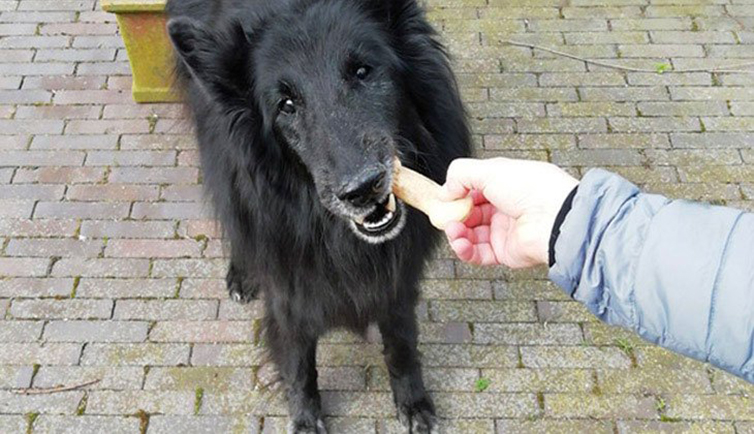
Obesity can be life-threatening in pets, as it can be in humans. Often, we mistake over-feeding with kindness. It is definitely not kind to subject your pet to a shorter lifespan, possible diseases and lowered quality of life. Treats, as we know can represent many additional, often useless, calories for your pets. They will, of course gobble them up. It’s up to you to limit them and to choose them wisely.
Vets usually advise limiting treats to 10% of your pet’s daily calories.
The number of calories they need depends on factors such as their weight, age and activity level. A little couch potato will need less calories than a dog or cat that has a lot of exercise. For example, a small 4kg dog will need approximately 290-450 calories per day. Their treats should be limited to no more than 30-35 calories per day. Many commercially produced treats can be over 75 calories each.
Always bear in mind the activity level of your pet. If your dog walks or runs several kilometres a day, they can handle some extra calories. Just like humans, some furries have a high metabolism and can handle all the calories they can eat, but remain thin. Great Danes and Greyhounds are examples of this. For inactive couch pets and those who tend to put on weight easily, you will have to watch the calories.
For your kitty, he/she needs less calories than your pooch. For example, if kitty weighs around 4kg, he/she should be eating approximately 120-180 calories per day. Again, this also depends on their age and activity level.
So, do the maths! You will soon realise that it would be very easy to go over the daily calorie allowance in commercial treats alone (or in a piece of cake). If you feel guilty guzzling milk tart in front of your pet, take it into the bathroom and close the door.
Healthy Treats
Here are some treat ideas for your pooch and, in some cases, your kitty:
Fruits and Vegetables
Dogs are naturally omnivores and in the wild consume meat, bones and some vegetation. Cats, however, are carnivores and have evolved without eating fruits or vegetables. However, some cats seem to enjoy certain veggies, which should all be cooked, such as carrots, asparagus, green beans, broccoli and squash.
Usually, fruit and vegetables contain fewer calories than commercially-produced treats and are healthier, but the key is moderation. Any fruit or vegetable may cause digestive problems if eaten in large quantities. If in doubt, consult your vet.
Some suggestions for doggie treats:
- Apples, for example, provide vitamin C, fibre and calcium. Cut up the apple and remove the core and seeds.
- Blueberries provide healthy antioxidants and vitamin C.
- Carrots contain vitamin A and fibre. Raw carrots are good for chewing but cut them up first to prevent choking.
- Sweet potato ‘biltong’: scrub the potatoes, cut into small strips, and bake in an oven at 120-140 degrees oven for a couple of hours.
- Other fruits and vegetables often enjoyed by pooches include: green beans, broccoli, squashes, peas, cucumber and bananas.
Commercial Treats
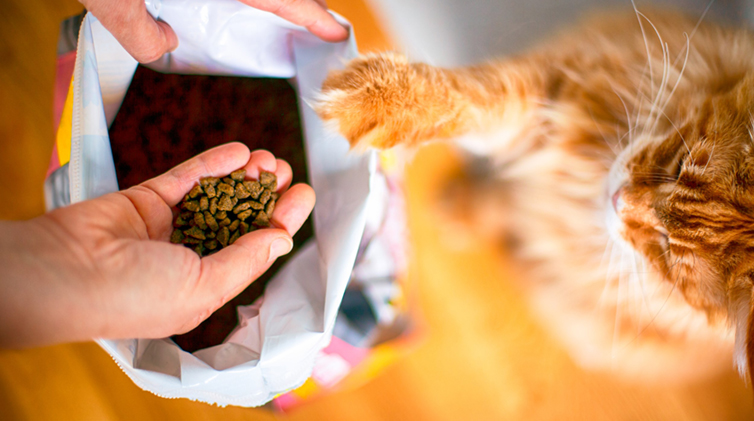
- Ingredients
Read the label carefully.
Treats that are designed for dogs and cats usually have a nutrition label on the packet which gives the number of calories, fat content and ingredients. If they don’t, don’t buy them if you are concerned about the contents of treats.
Treats are not usually made to be nutritionally balanced, so if you give your pooch or kitty too many and reduce their normal food, your pet may not be getting a nutritionally-balanced diet.
Avoid those which contain artificial colouring, artificial flavours or fillers.
Research has shown that you should avoid grain-free foods as grains, in moderation, can provide extra fibre, good calories and vitamins and minerals.
Avoid those which contain Xylitol, an artificial sweetener, excessive salt, syrups (which contain sugar) or any ingredients, such as raisins, chocolate or any foods which are toxic for pets,
- Size
Treats which are too big or too small can cause problems for your pet, such as choking. Most vets suggest watching your pet while they chew certain treats such as rawhide chews: they can break off small pieces which may get stuck in your pet’s throat.
Size also depends on what you intend to use the treat for: training, mental stimulation or just enjoyment! Treats for training should be very small so that you can reward your pet many times for good behaviour. Treats for enjoyment or mental stimulation should be larger as you want your pet to enjoy them for a longer period of time.
- Dental Treats
Dental treats can help to remove some plaque and tartar build-up but they are not a substitute for regular brushing. They may also help to maintain gum health and help to freshen ‘doggie breath’. The kind of ‘chewer’ your pet is determines whether or not they will benefit from dental treats. Some pooches (the guzzlers) will chew a couple of times and simply swallow the treat which is defeating its purpose.
DIY Pet Treats
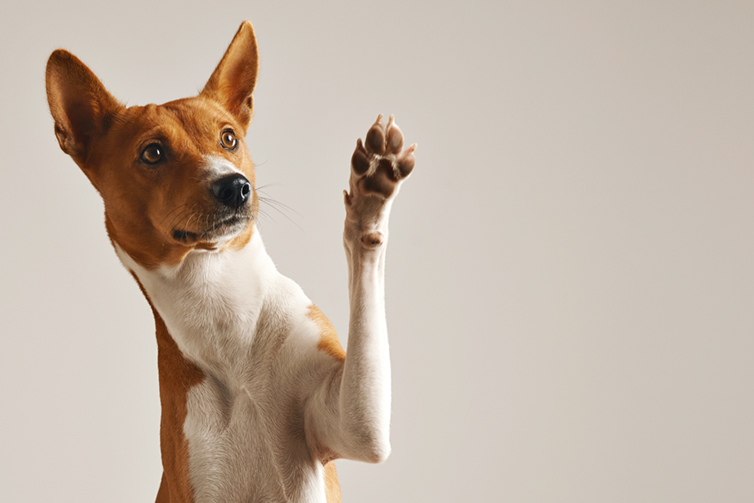
If you want to save money and to control the ingredients of treats for your pets, then you might want to consider making them yourself. Here are some ideas:
Peanut Butter Biscuits
(tasteofhome.com)
2c wholewheat flour
1c toasted wheat germ
½ teaspoon ground cinnamon
¾ c water
¼ c smooth peanut butter
1 egg
2 tablespoons canola oil
Method
- Combine dry ingredients and then add the remaining ingredients to make a dough.
- Roll dough to ½ cm thickness and cut with a bone-shaped cutter. (You could simply cut into squares.)
- Place onto an ungreased baking sheet, 5cm apart, until bottoms are light brown, for 30-35 minutes.
- Cool on a wire rack and store in an airtight container.
And especially for kitties:
Salmon Cat Treats
(greatist.com)
140g tinned salmon (tinned in water with no added salt)
1c flour (gluten-free if required)
1 egg
Method
- Combine all ingredients in a large bowl to make a soft dough.
- Roll dough out to 1cm thickness and cut into small pieces or use a cookie cutter.
- Place on a baking tray and bake at 175 degrees for 15-20 minutes.
- Cool and refrigerate for up to 5 days.
We hope that your pets enjoy these treats and that you enjoy watching them enjoying them!
ZA-NON-230700001
Subscribe to our Newsletter
Get to know your furry friend better! Sign up for all things dog- or cat-related.
The Hairy Facts about the dreaded hairball
12 April 2021
Help! My dog’s barking mad! Volume 2
12 April 2021
Your Itchy, Scratchy Cat – All About Cat Skin Problems
12 April 2021
The Dog’s Diet: A Bone of contention?
01 April 2021
Mango Fly Worms: How to Spot and Eliminate them
Posted on November 28,2019
Managing Mange And Mites In Your Dog
Posted on June 11,2018
Why Do Cats Purr and How? Learn What Your Cat Is Saying
Posted on October 14,2020
How to Get Rid of Ear Mites in Dogs
Posted on November 06,2019


